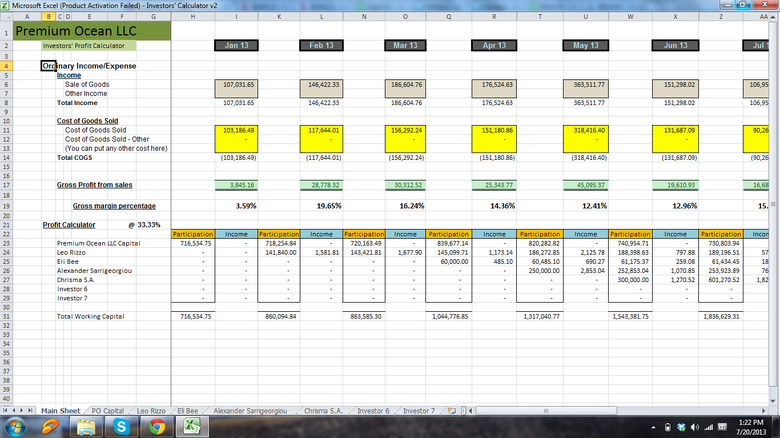Essential Paperwork Every Attorney Needs to Know

The legal profession thrives on precision and detail, which means attorneys must be well-versed in handling various documents. Whether you are a seasoned lawyer or a budding legal professional, understanding essential paperwork is fundamental to practicing law effectively. Here, we delve into the critical documents every attorney should know inside out, offering insights on why these papers are vital and how they impact legal practice.
Types of Essential Legal Documents

1. Contracts
- Contracts form the backbone of legal practice, encompassing everything from business deals to employment agreements. They define the rights and duties of the parties involved, protecting their interests.
- Key Points:
- Identify and define all parties involved.
- Set out clear terms and conditions.
- Include dispute resolution mechanisms.
2. Wills and Trusts
- These documents dictate the distribution of an individual's assets upon their demise. They are not only about wealth distribution but also ensure the legal and financial protection of the remaining family members.
- Key Points:
- Clearly outline assets and beneficiaries.
- Include executor or trustee appointments.
- Regular updates to reflect changes in personal circumstances.
3. Power of Attorney
- This document allows an individual to delegate decision-making power to another when they are unable to make decisions themselves, due to incapacity or absence.
- Key Points:
- Specify the scope of authority.
- Determine the duration or conditions of termination.
- Durables vs. non-durables: choosing what is appropriate.
4. Deeds
- Deeds transfer ownership of real property from one party to another. Proper execution of deeds ensures that the title transfer is legally binding.
- Key Points:
- Proper description of the property.
- Signatures and notarization.
- Recording with the appropriate governmental office.
5. Court Documents
- Litigation involves a wide array of documents like summons, complaints, answers, motions, affidavits, and more, each serving a specific function in the judicial process.
- Key Points:
- Understand the importance of timeliness in filing.
- Proper service of process.
- Strategic use of legal motions to shape case development.
Handling Legal Documents

Navigating the intricacies of legal paperwork requires attention to detail and a thorough understanding of legal procedures. Here are some best practices:
- Accuracy and Completeness: Ensure every document is thoroughly reviewed for errors or omissions. Errors can have significant legal repercussions.
- Timeliness: Legal deadlines are not suggestions; they are requirements. Filing documents on time is critical to avoid case dismissals or procedural disadvantages.
- Confidentiality: Legal documents often contain sensitive information. Adhering to privacy laws and maintaining confidentiality is paramount.
- Record Keeping: Organizing and maintaining a robust filing system, both digitally and physically, is essential for efficient document retrieval and case management.
- Understanding Legal Implications: Every document has legal implications. An attorney must understand how each piece of paper affects their client's case or legal standing.
Managing Client Documents

Clients rely on attorneys to manage their legal paperwork effectively:
- Initial Intake Forms: Gathering comprehensive client information through well-designed intake forms can set the foundation for effective case management.
- Communication Records: Keeping a detailed record of all communications, whether emails, meetings, or phone calls, can prove invaluable in litigation or disputes.
- Client Trust Accounts: If handling client funds, meticulous management of trust accounts ensures ethical practice and compliance with regulations.
- Conflict Checks: Before taking on new clients, perform conflict checks to avoid ethical breaches.
Technology and Legal Document Management

The modern legal practice has embraced technology to streamline document management:
- Electronic Discovery Tools: Tools for managing e-discovery can significantly reduce the time and cost involved in reviewing large volumes of electronic documents.
- Practice Management Software: These systems integrate client communications, document management, and time tracking, all in one platform.
- Cloud Storage and Collaboration: Cloud services offer secure storage, easy access, and collaborative environments for legal teams working remotely or from different locations.
⚖️ Note: While technology can enhance efficiency, attorneys must always ensure that client confidentiality is not compromised, even in the digital space.
Importance of Legal Documents in Practice

Legal documents serve as the tangible evidence of a client's rights, responsibilities, and legal status. They can:
- Provide evidence in court.
- Establish the legal basis for claims or defenses.
- Ensure the smooth transfer of assets.
- Protect clients' interests in various legal scenarios.
To sum up, the realm of legal documentation is intricate and foundational to legal practice. From contracts to court filings, each document plays a crucial role in shaping legal outcomes. By mastering the art of document management, attorneys not only safeguard their clients' interests but also maintain the integrity of the judicial process. The adept handling of legal paperwork showcases a lawyer's professionalism, ethical standards, and capability to navigate the complex legal landscape, ultimately providing the highest level of service to their clients.
What is the difference between a will and a trust?

+
A will is a legal document that takes effect after your death, dictating how your assets will be distributed. A trust, on the other hand, can take effect during your lifetime and allows for asset management and distribution both before and after your death.
How long does an attorney have to file legal documents?

+
The deadline for filing legal documents varies by jurisdiction and case type. For instance, civil cases might have a 30-day rule for answers, while statutes of limitations apply for initial filings. Always refer to local rules and the court’s schedule.
What should attorneys look out for when using technology for document management?

+
Security is paramount. Attorneys should choose software that ensures data encryption, offers secure cloud storage, complies with data privacy laws, and provides backup solutions to prevent data loss.



